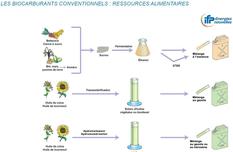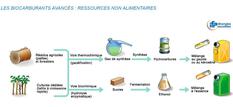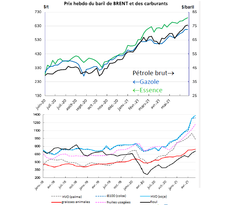Working with building managers
Building managers have a vital role to play in the energy transition.
They are involved in a wide range of issues, such as setting up recycling areas, carrying out energy audits and monitoring energy consumption, developing the use of renewable energy sources to power buildings, and so on.
For this reason, the Mission for Energy Transition is keen to support building managers with their various plans, and brings them together regularly.
See below for a list of presentations by Government departments:
Presentation on 13/01/2021
2021 meeting of building managers
A video of the meeting is available online: https://www.youtube.com/watch?v=uV4EbBKUIs4
Presentation on 27/11/2019
The role of building managers in the energy transition
Proper use of liquid fuels in buildings
In connection with the ban on using fuel oil in all buildings, introduced on 1 January 2022, the Mission for Energy Transition regularly receives questions from building managers and co-owned apartment buildings about the increasing number of substitute products available.
Numerous questions have been raised, and this page aims to offer some initial answers. Please do not hesitate to contact the Mission for Energy Transition at the following email address if you require any further information: transition-energetique@gouv.mc
Building managers are being offered synthetic and non-synthetic petroleum products which are not called fuel oil, but which often produce the same amount of greenhouse gas emissions. It is important to be aware of these products and to be able to identify those that produce the highest greenhouse gas emissions. Using products like this makes it more difficult to reach the target of reducing greenhouse gas emissions by 55% by 2030, adopted by the Principality under the Paris Agreement.
It is for this reason that the Government decided to regulate the use of liquid fuels. Decree 2022-433, published in the Journal de Monaco on 5 August 2022, amending Ministerial Decree No. 2018-613 of 26 June 2018 on the thermal characteristics of new buildings, renovations of existing buildings and extensions, includes the following provisions:
“No liquid fuel with an emissions factor higher than 0.180 KgCO2 eq/kWh (kilograms of carbon dioxide equivalent per kilowatt hour) may be used to produce heating and/or domestic hot water.
…/…
All bioliquids produced from palm oil are banned.
The supplier and/or distributor of the fuel must specify on the invoices provided to the end client the geographical origin and nature of the product used to produce the bioliquid.”
More information on biofuels:
Three generations of biofuels are on the market or being developed.
First-generation biofuels are produced from plant oils, primarily esterified rapeseed oil (sold as B100 or FAME1), hydrogenated sunflower, soya and palm oils (sold as HVO) or esterified used oils (sold as B100re). These fuels are already produced on an industrial scale, although in limited quantities since they compete with food crops. Suppliers are varied and the origin of the biofuel may be more or less distant from where it is being used (these fuels can come from France, the Netherlands, Argentina, etc.). Demand for these products for use in transport is exponential, as they are one of the few solutions currently available for reducing the greenhouse gas emissions of planes, boats and lorries. The limited supply and growing demand is creating pressure on prices. FAME is currently 50% more expensive than fuel oil for a comparable amount of energy delivered.
FAME: fatty acid methyl esters
Second-generation biofuels have been developed to address this limited supply and avoid competing with food resources. They are manufactured using the lignocellulose found in wood (forest residues), straw (agricultural residues) or specially grown crops. They are just starting to be sold commercially.
Third-generation biofuels, or algae fuels, must be produced from algae, microalgae or bacteria. They are at the research and development stage.
Substitute products are also being sold. Although they are not branded as fuel oil, they are produced using hydrocarbons (natural gas, petrol, etc.). Sold as XTL, the emissions of gas-to-liquid (GTL), for example, are equivalent to those of fuel oil or diesel oil. GTL is produced using natural gas; use of this product is delaying the Principality’s achievement of its Paris Agreement targets.
Annual greenhouse gas emissions of a building depending on the fuel used for heating
* Based on lower heating value (LHV) (valid for standard gas boilers)
These emissions are calculated using a standard approach by reference organisations, and they include all emissions associated with the use of these products (production, transport and use).
If you would like to introduce biofuels, we recommend that you ask for certificates of origin for products. These should, as a minimum, specify the nature of the product, its provenance and estimated greenhouse gas emissions. Use of these fuels remains the responsibility of property owners. Any new system or change of fuel requires a technical submission to be made to the Department of Forward Studies, Urban Planning and Mobility.
As with hydrocarbons, biofuels respond to the law of supply and demand, and are traded on global commodity markets. Prices for these fuels are more volatile than those for electricity, which are regulated in the Principality.
As shown in the figure above, biofuel prices have been higher than fuel oil prices for nearly two years.
N.B.: due to the deforestation that is caused by growing palm and soya crops, France has decided to no longer consider this type of fuel as a biofuel.


[#YourMonaco]
— Gouvernement Monaco (@GvtMonaco) July 31, 2020
La Principauté se dote d'un nouvel outil de communication urbaine. https://t.co/5f1DsYi2No








